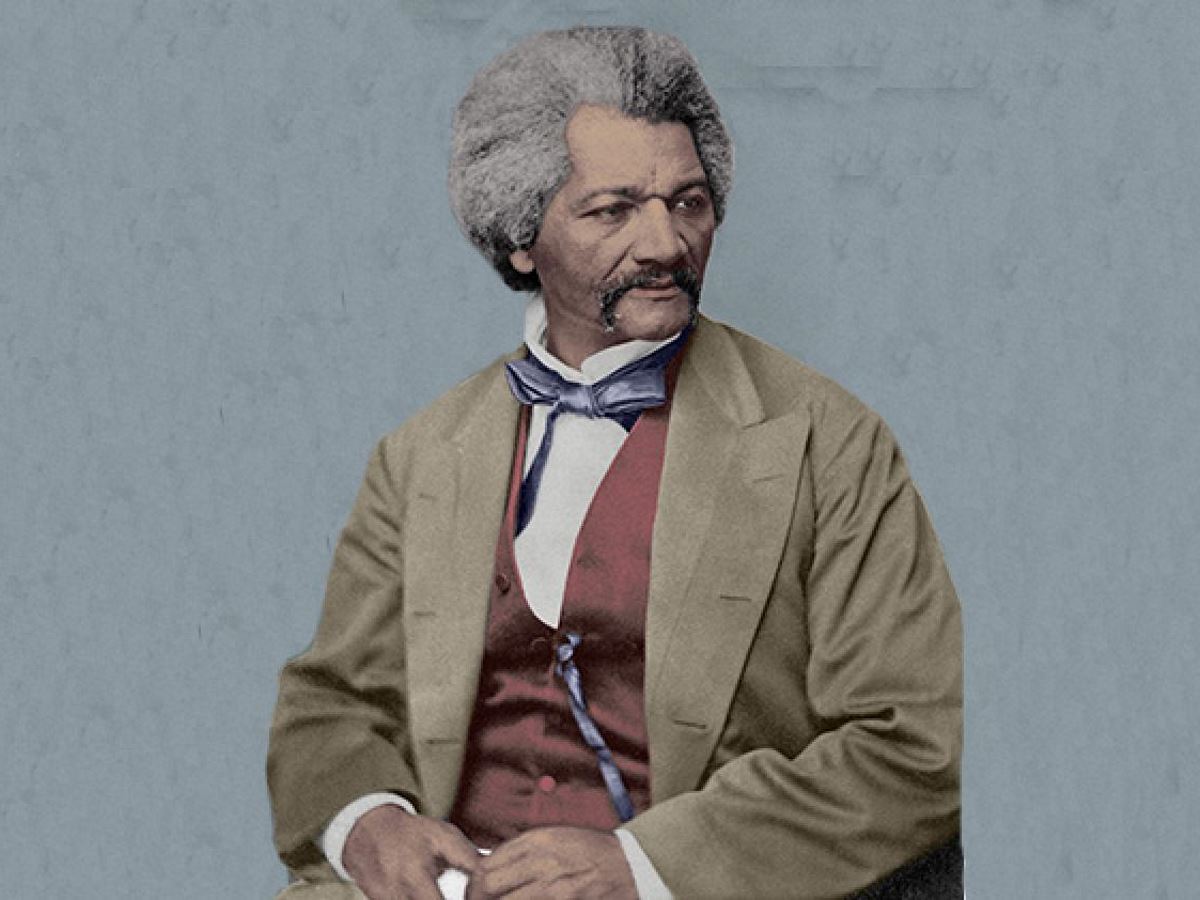 Read some of our Latest articles.
Read some of our Latest articles.
John Montgomery Ward (yes, of those Montgomery Wards) pitched the second perfect game in Major League Baseball history on June 17, 1880 – 137 years ago – a 5-0 victory for Providence over Buffalo. He pitched it just five days after the first perfect game was pitched by J. Lee Richmond. Another perfect game would not be pitched until Cy Young shut down Philadelphia on May 5th, 1904. Some purists believe there should be an asterisk by Ward’s name. Because the start time of the game had been moved up from 3:30 pm to11:00 am to allow for an afternoon event, every batter Ward faced was looking squarely into the sun. Of course every Providence batter squinted into the same sun, and they still managed to score 5 runs – but some think this unfair advantage diminishes Ward’s accomplishment.**
Some purists try to put an asterisk next to just about every name in the record books. Some say Emit Smith, and Walter Peyton before him should have an asterisk next to their records for career rushing yards since they played 14 and 16 game seasons, while Jim Brown played 12 game seasons. Many believe Barry Bonds should have an asterisk next to his career and single season home run records since he almost certainly used performance enhancing drugs. Others argue that Babe Ruth had plenty of chemicals in his veins back in the day, although I don’t think alcohol and nicotine ever enhanced anyone’s performance.
The writer of Ecclesiastes reminds us that: The race is not to the swift, nor the battle to the strong, nor bread to the wise, nor riches to the intelligent, nor favor to those with knowledge, but time and chance happen to them all (9.11). We can point to almost any human achievement and find elements of advantage, coincidence, and dumb luck that made it possible. Once you start slapping on asterisks, where do you stop?
On judgment day, when all our deeds are scrutinized, our failures will be indefensible for God has given us the resources to succeed (II Peter 1.3), and has managed our challenges so that they are not more than we are able to bear (I Corinthians 10.13). But our successes – will we be able to truly own them? How many of our good deeds are done selfishly, or even accidentally? How often are they so poorly planned that without a huge dollop of luck they would have imploded? Since every circumstance will be exposed, how many moments of unmitigated goodness will any of us have to our names? How many of our achievements will stand without an asterisk?
This is true for us all - for every human who lives, has lived, or will live – except for Jesus. Jesus’ life admits no asterisks. He is perfect (Hebrews 4.15). Therefore, we are blessed that when God sees us He sees Jesus, because as Christians we wear Christ: For as many of you as were baptized into Christ have put on Christ (Galatians 3.27).
When God sees us he sees Jesus. We put Him on in baptism, and unless we take Him off through rebellion or neglect, He envelops us. We are saved because of Jesus, not because of ourselves – it is the Gift of God (Ephesians 2.8). My salvation is not my own – it has been given to me. Thus in the Book of Life, my entry would read:
Barry E. Bryson, b. 4/24/1962: Saved.*
*By grace.
**Perfect, James Buckley Jr., 2002, pp.19-29.
In our Sunday morning Bible class we have been talking about the occupation of the heavenly host. The host of heaven is occupied with praise. This praise is done together. Revelation 4 -5 make this clear. Also clear is that the host of heaven is happy…no – ecstatic. We want to join that ecstatic throng. We sing “When We All Get to Heaven,” “When All of God’s Singers get Home,” and “Heaven Holds All to Me.” We look forward to exactly this moment – when all of us, together, sing praise to God, gathered around His throne forever.
And yet in my 35 years of ministry I have spoken to countless brothers, and even a few sisters who claim to dislike hymn-singing. Many even go so far as saying they dislike any music. This is beyond my comprehension. How could anyone not enjoy singing hymns? I would forego getting my 32 inch-waist, and my full head of hair back a hundred times if I could enjoy the full strength of my voice again. One of the great things about heaven, to me, is that we will “sing and never get tired” just like the old spiritual promises. How can one look forward to heaven if one dislikes hymn-singing?
That second salient feature of the description of Heaven - that we are always all together – is a little tougher for me. I’m not fond of crowds. Heaven is clearly a crowd. I like alone time. Heaven promises none of it. I am used to a healthy margin of personal space – something Heaven seems not to offer. And so I must ask myself: “okay, Mister Prickly Pear, if you can’t abide being a bee in a hive, how can you look forward to heaven.”
The answer is simple. The glory we will experience together, around God’s very Person, cannot be compared to any human experience here on Earth (Romans 8.18). One may not like hymn-singing here, but nothing here will be as blissful as singing there. One may despise being crowded and jostled here, but nothing here will be as satisfying as being together there.
Our brains struggle to visualize the descriptions John gives in Revelation 4-5, and 21-22. John is reduced to describing shapes and colors – arcs and cubes, greens and golds and reds. But the effect of glory and exhilaration is achieved by the limited tools of human language. Heaven radiates off the pages of scripture. We know it is a place of no pain, no regret, no emotional baggage, no loneliness, no longing, no deprivation, no parting. It is the place where God makes everything new.
And so whether we love hymn-singing or dislike music altogether, whether we love the excitement of the crowd or prefer solitude, we look forward to heaven anyway. Heaven is the place we belong. It is the place made for us (Matthew 25.34, Philippians 3.20). Here we are aliens and strangers (I Peter 1.1). This displacement, this refugee life is stressful and creates in us a longing for home (II Corinthians 5.1-10).
Heaven is where we belong. Nothing else matters. We may not be able to imagine enjoying an eternity without chocolate, or golf, or caffeine, or football, or a thousand other things. But our anemic imaginations cannot dim our longing for home, or our conviction that Heaven will exceed all expectations.
In my opinion the best television series ever broadcast was The Twilight Zone. Its combination of great writing, great acting, suspense, social relevance, and pure entertainment value can’t be beaten. Not every episode was outright frightening. Some episodes of The Twilight Zone (“From Agnes with Love” starring Wally Cox, and “The Ring-a-Ding Girl” starring Carol Burnett) were funny. Some (“The Changing of the Guard,” and “Two”) are hopeful. Most of them are suspenseful. All of them contain surprises. Some are menacing and nightmarish.
The scariest episode of The Twilight Zone ever, in my opinion, is one titled “It’s a Good Life.” In this episode the quaint farming village of Peekville, Ohio is under the control of a 6 year old boy named Anthony, played to creepy perfection by Billy Mumy. If he doesn’t like you he can wish you into the cornfield. He can do other unpleasant things as well - make three-headed gophers, kill your pets, or cause it to snow in the summertime. Anthony decides everything for everybody, and the only acceptable response is “It’s a real good thing you did Anthony…a real good thing.” It’s all very stressful. There is a moment in the episode when Anthony is distracted and one of the men pleads with the others to kill him, but they can’t bring themselves to kill a 6-year-old boy. And so, Anthony’s reign of terror continues, and that man is wished into the cornfield.
Can we imagine a world that frightening - a world controlled by someone with the emotional maturity of a six-year-old bully, and who has immense power over the rest of us? Yes, I think we can.
We seem to have a high tolerance for bullies nowadays. Men who behave badly, who say rude things, who exploit others, who push others around, who take every cheap shot available, who insist they are the best at everything, and who put their thumb in the eye of anyone who doesn’t approve seem to populate the fields of sports, entertainment, and politics (especially politics). I believe we Christians must reject the example of such men, and we must learn to deal with them as Christians.
That we should reject such men seems like it should be so obvious to a disciple of Jesus that my words will be superfluous – I am afraid they are not. Let me offer the following passages which make it clear such behavior is unacceptable: The Four Gospels, Acts, Paul’s letters, Hebrews, James, Peter’s Letters, Jude, John’s writings.
How does one deal with a bully? This is a skill-set we must acquire as our culture becomes more vigorously Darwinian (I am speaking of Social Darwinism). We know that we must never overcome evil with evil, but with good, and that as much as it depends on us we must be at peace with all (Romans 12.17-8). But what do we do when confronted with a bully?
Jesus says, “When someone strikes you on your right cheek, turn the other to him also” (Matthew 5.39). In other words, Jesus says, “When you face a bully don’t hit back and don’t back down.” These are fine words, but they are more than words - Jesus lives them:
One of the officers standing by struck Jesus, saying, “Is that any way to talk to the High Priest?” Jesus answered him “If I have spoken wrongly, show me. If I spoke correctly, then why did you strike me?” John 18.22-23
Jesus does not hit back, neither does he back down. He stands his ground and speaks the truth. This is how Jesus deals with a bully, and as his disciples this is the way we must deal with one as well.
Of course, those moments when we are confronted by a bully are usually dominated by the impulses of our fight-or-flight hormones and our limbic brain. A primitive, hair-trigger response will be our impulse and our action if we are not prayerful, and forearmed with the skills Jesus both teaches and models for his disciples.
Don’t hit back, and don’t back down – this is what Jesus teaches and what He does.
- Barry Bryson
Some time in 1817, somewhere in Talbot County on the Eastern Shore of Maryland, Harriet Bailey gave birth to a baby boy. She named him Frederick. She did not get to raise him. Shortly after her son’s birth Harriet was sent to work on a farm 12 miles away. Harriet, you see, was a slave. Her son was only to see her four or five times before her death seven years later. These visits are described in the opening paragraphs of the Narrative Life of Frederick Douglas:
I never saw my mother to know her as such more than four or five times in my life; and each of these times was short in duration and at night…She made her journeys to see me in the night, travelling the whole distance on foot, after the performance of her day’s work…I do not recollect ever seeing my mother by the light of day. She would lie down with me, and get me to sleep, but long before I waked she was gone.*
I have read this passage a hundred times or more, and cannot read it without weeping – sometimes violently. I think of that poor woman, torn from her son, planning for months to steal away in the night, walking twelve miles each way just to lay down with him a few hours, risking a beating or death if she was caught – and it is more than I can bear.
And yet the man who owned her doubtlessly thought of himself as a good Christian. He certainly listened to his parson use the scriptures to tell him so every Sunday. I thought of Harriet Bailey and of her owner after I overheard some brethren talking a while back about race, the Stars-and-Bars, and this and that. One said, “I’m sure slavery was not nearly as bad as the history books tell it,” as the others nodded agreement.
I’ve waited awhile to formulate a response. My impulse was to use history and the scriptures to demonstrate that the Roman institution of slavery the Bible addresses and the institution practiced in the United States are completely different, and thus the American version of slavery is indefensible. This is completely true, the argument easily made - but there is a bigger truth we need to address.
The truth is personal, not theoretical. If a value is not personal – not tied to life as persons live it – it is not true. “The Sabbath was made for man, not man for the Sabbath,” Jesus declares in Mark 2.27. He uses a personal example – David eating the consecrated bread - to apply this truth. When Paul is asked to deal with the topic of slavery (see the book of Philemon) he makes arguments that are true and completely personal. When Jesus prosecutes the scribes and Pharisees in Matthew 23, He consistently accuses them of ignoring the personal nature of truth. The Pharisees had fine theories of how to keep and protect the law, but in actuality they robbed widow’s houses, and killed the prophets.
Truth is personal. Truth emanates from a Person (God: see Psalm 119.160), is expressed through a person (Jesus: see John 1.17), and is given for persons (us: see John 8.32). Moral truth is not mathematical, theoretical, or abstract – it is absolutely and irrevocably tied to the lives humans live. Thus, when we think about the tough issues we must keep our consideration personal if we are ever to arrive at the truth – we must use the Bible to know the person of God, to follow the person of Jesus, and to apply what we have learned to the actual lives persons live.
One could respond to slavery’s proponents, past and present, by arguing abstract truth, OR one could remember Harriet Bailey, and then ask:
“Explain how treating a person this way is following Jesus?”
An interlocutor could supply a well argued, lawyerly answer to the abstract argument. But no one can come up with a satisfactory answer to the personal one.
- Barry Bryson
*Narrative Life of Frederick Douglass: An American Slave, first published in 1845 at the Anti-Slavery office, Boston MA.
So many commercials warn us about hidden fees. My favorite is the one where the fees crawl off the page like insects and infest a family in their living room. Hidden fees can really gouge a person in the wallet. I remember joining my first record club when I was fourteen or so, and seeing the great prices in the catalogue – then adding on the shipping and handling fees. What is “handling” anyway? There is another commercial out where a guy in a white tuxedo and blue gloves goes around touching products ready for sipping, “I do all the handling,” he says.
Hidden fees can really add up. I was at a congregation once which had a new deacon as treasurer. He went through every line of every bill looking for hidden fees, and ended up saving the congregation more than $1000 a month. Perhaps the best example of hidden fees from American History comes from our first President. When George Washington was commissioned by the Continental Congress to be commander in chief of the Continental Army, he famously and nobly refused any salary – asking only that his expenses be covered. Congress agreed. Had he received a salary for the 8 years of the war he would have been paid just shy of $50,000. His meticulously kept expenses, published by congress in 1803, totaled $449,261.51 (a sum that would amount to around $5,000,000 in today’s dollars). This included everything from boot-black and handkerchiefs to more than $6000 some months for wine and spirits.
Sometimes relationships are fraught with hidden fees. People often seem to offer help, sympathy, support, and their hearts freely – but really they are expecting princely sums in return. Congregations can be that way as well. God never is.
There are never any hidden fees with God. He is always honest with us. I was struck by this fact during our Sunday morning Bible class on Revelation. Most of the book is about God’s punishment of the Roman Empire for its persecution of Christianity. At the beginning of chapter 18 the fall of Rome is announced (verses 1-3), there is a brief passage affirming the justice of the fall (4-8) and then 11 verses (9-19) lamenting the fall. Rulers, merchants, sailors, and tradespeople weep because now that Rome has fallen there will be no infrastructure, nor bureaucracy to provide for safe borders, safe seas, and safe trade. This happened of course. The fall of Rome was followed by the Dark Ages – which were “dark” for everyone, the faithful included.
One might expect that after the fall of the Evil Empire a utopian paradise on earth would follow – ding dong the witch is dead – but no, that is not what happened historically, and God, in prophecy, tells us the truth of what will happen. He always does.
“Every day has enough trouble of its own,” “The world hates me, and it will hate you as well,” and “Everyone who seeks to live a Godly life will be persecuted,” are all reality checks that God provides….just in case we believe the “abundant life” promised us means cupcakes and Shetland pony rides (see Matthew 6.34, John15.18-19, and II Timothy 3.12).
What the abundant life means is that we have a Good Shepherd who leads, feeds, and protects us (see John 10.1-18, and Psalm 23). Our part is to love the Lord with all our heart, soul strength, and mind, and to love our neighbors as ourselves (Mark 12.29-31). This sums it up. God keeps every promise. He tells us plainly how we are to be and how things will be in this sinful world. There are no hidden fees, handling charges, or reimbursements expected.
- Barry Bryson







